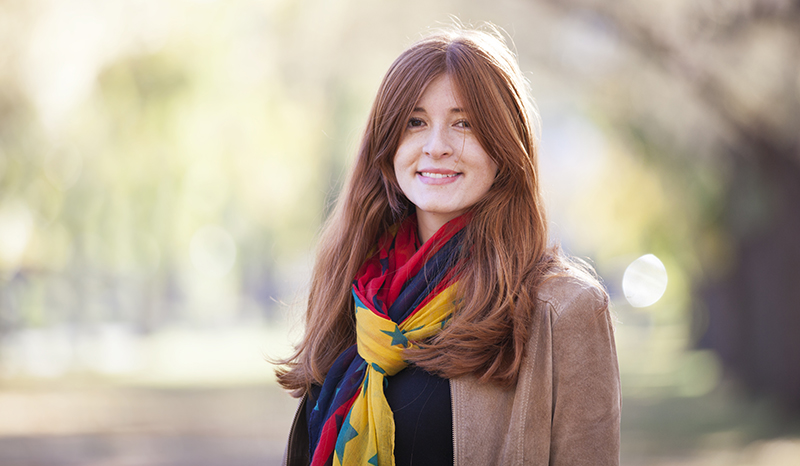Eleanor Campbell

“Imitation is the sincerest form of flattery,” said little-known English writer Charles Caleb Colton.
Not being a biochemist, it seems unlikely that he was talking about engineering enzymes. Nonetheless, for chemist Eleanor Campbell, this is a philosophy she can get behind.
Eleanor, from the ANU Research School of Chemistry, is taking lessons from nature’s chemists: enzymes. And for good reason too.
“One of the big problems with chemistry as a discipline is that many chemicals and methods have harmful environmental impacts,” Eleanor explains.
In many cases, we have come to rely heavily on these chemicals.
“The chemicals are common. For example, runoff from agriculture contains pesticides and herbicides which can damage the environment.
“It’s a necessary evil: to meet the demands of a growing population, farmers have to grow more food.”
Fixing the problem involves a bit of flattery. Imitating natural processes, Eleanor is using enzymes to detoxify the harmful chemicals.
“Enzymes do the majority of the chemistry in biological systems including in our bodies. Any chemical reaction that happens is probably happening because an enzyme is doing it,”
“We want to minimise our impact on the environment by taking lessons from nature. It’s green chemistry”
She just has to design the right kind of enzyme for the job.
“That’s where the engineering comes in. One of the hallmarks of enzymes is their specificity. They will only break down the chemicals that we want them to break down.
“So it’s the perfect little foot soldier to go in to mop up those harmful chemicals without causing any harm in itself.”
The key to engineering enzymes is in their surface.
“Enzymes are incredibly interesting and powerful catalysts, but the thing that really dictates how they interact with the world around them is what their surfaces look like.”
By altering the features of the enzymes’ surfaces, Eleanor can turn her little foot soldiers into something useful: a material, a component or a tool.
Flattery, it seems, will get you anywhere.
